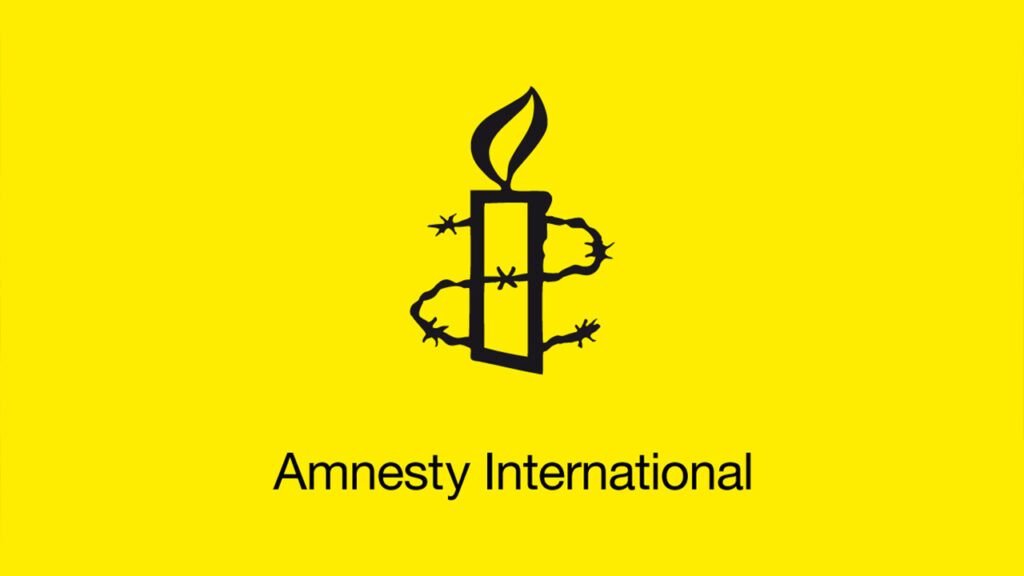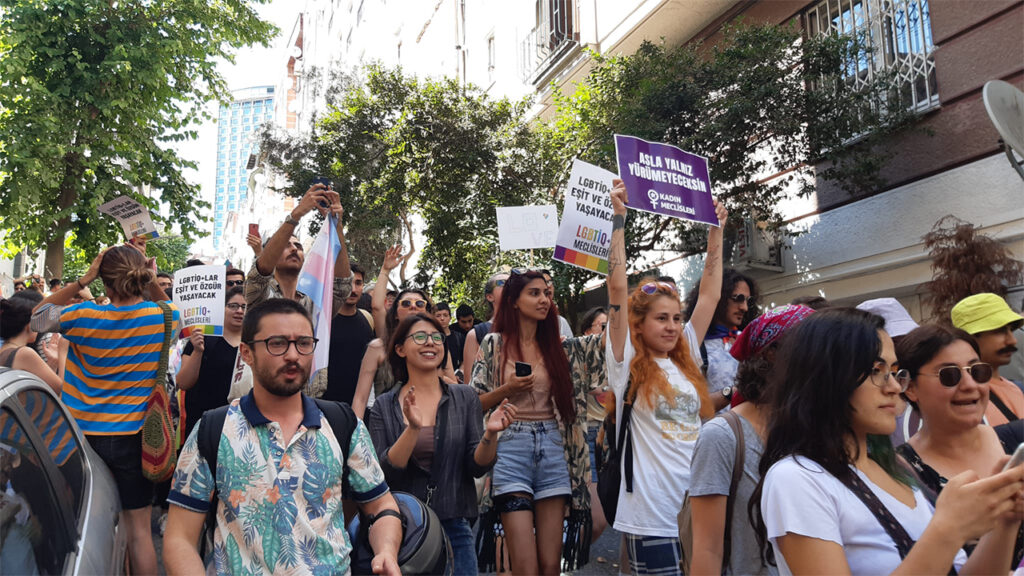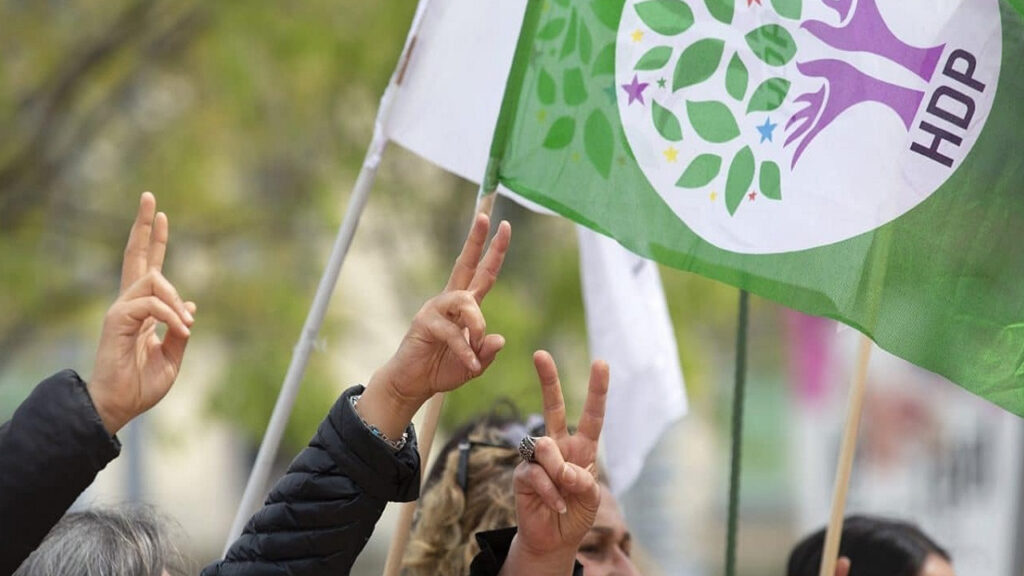Robin Fleming
With Turkey’s presidential elections fast approaching around the corner, the question of what kind of country Turkey has become under the rule of current president Recep Tayyip Erdoǧan and his Justice and Development Party (AKP) is under the microscope. For many Kurds living in Turkey, or south of its border in North and East Syria (NES) the answer to this question is clear – that Turkey is an undemocratic, repressive war machine, targeting Kurds and other minorities at every opportunity.

Amnesty International released a new report on Monday which digs into this question, and details human rights violations and failures of the current Turkish government through the year of 2022, meaning that the report includes no mentions of the slow, and insufficient response to the earthquakes of 6 February 2023, which resulted in wide spread condemnation of Erdoǧan, the AKP and Turkey’s Disaster and Emergency Management (AFAD).
🔴 #AUDIOARTICLE| Read or listen to Robin Fleming's latest article, where "The question of #democracy in #Turkey has never been more important as it is now in 2023."https://t.co/MqbqJkKtKNhttps://t.co/pVA2iDMMqq pic.twitter.com/varxfYi9vG
— MedyaNews (@1MedyaNews) March 31, 2023
The report specifically mentions infringements of freedom of expression, assembly and repression of human rights defenders, citing the detention of 16 journalists in June 2022 as well as the co-chair of the Dicle Firat Journalists Association. Pop stars were remanded in prison for social media posts, the president of the Turkish Medical Association, Şebnem Korur Fincancı, was also detained in October for allegedly declaring her suspicions of chemical weapons use, and Istanbul’s mayor was banned from politics, simply for referring to other Turkish politicians as ‘fools’.
These instances might be dismissed by some as ‘outliers’ and not representative of the whole justice system of an entire country. But Amnesty International also draws our attention to systematic changes, and new policies introduced in Turkey which limit freedom of expression and gives the Turkish government more power to pursue, silence and arrest those who criticise it.
For example, the autumn of 2022 saw the introduction of new legal amendments, often referred to as “the censorship law.” Much of the wording of these amendments is dangerously vague, and open to manipulative interpretation such as the new criminal offence of “spreading disinformation.”

Intolerance and hate continue to run rampant in Turkey’s political discourse. The report pointed to attacks against many groups, including LGBTI groups and refugees and migrants, saying:
“Politicians, including government officials, regularly used hate speech and smear campaigns, amplified by certain media, against the LGBTI community. Discrimination, intimidation and violence were particularly visible during Pride season when police violently attempted to disperse peaceful marches and detained participants… In September, the state broadcasting body RTÜK endorsed an advertisement in which LGBTI people were referred to as a “virus” and accused of causing the “destruction of families”. The advertisement promoted an anti-LGBTI rights demonstration in Istanbul.” It continued:
“The Turkish authorities used unlawful force including firing live ammunition to summarily return to Iran thousands of Afghans seeking protection. This included unlawful use of firearms against Afghans trying to cross, sometimes resulting in deaths or injuries. Under the guise of “voluntary returns”, some people were unlawfully deported via flights to Afghanistan.” Later in the report Amnesty International can be quoted as saying:
“Human rights organizations documented that between February and July [2022], the Turkish authorities arbitrarily arrested, detained and unlawfully returned hundreds of Syrian refugees.”
Those who were arrested and detained, arbitrarily or otherwise have a dismal future in Turkey, with many instances of torture, and poor treatment in prisons being reported by Amnesty International in 2022.
“Eyewitnesses reported that in April a large group of guards at Istanbul’s Marmara (formerly known as Silivri) prison had beaten inmates and urged the prisoners to kill themselves. One inmate, Ferhan Yılmaz, died in hospital in April after allegedly being subjected to torture and other ill-treatment at the hands of prison guards. Ten other prisoners were allegedly transferred to different prisons around the country after they too alleged that prison guards had beaten them.”
Amnesty International is not the only organisation to be critical of the present state of so-called ‘democracy’ in Turkey. Non-profit Washington-based organisation Freedom House referred to Turkey as ‘not free’ in its 2023 report on ‘Freedom in the World,’ placing Turkey at the same level as Russia, China, and Iran based on the conditions of political, civil and human rights.

The question of democracy in Turkey has never been more important as it is now in 2023. Erdoǧan’s AKP government has been in power since 2002, but the elections this year bring hope of a change. Will that change, if there is one, simply be turning from one autocratic ruling party to another, or will democracy have a chance now?
The hope for democracy lies in the continued existence of the Peoples’ Democratic Party (HDP).
The HDP describes itself as a ‘democratic, green party, one of freedom and equality… Pro-Peace, Pro-Labour, Pro-Gender equality and Pro-Self-determination.’ But my hope in the HDP isn’t based solely on their words, or self-presentation. Their own organisation itself is based upon the ideals and principles which they hope to put into place in Turkey. For example, women are free to organise themselves and assemble autonomously within the party. This method of organising ensures that women are given the space and power to be at the forefront of the party’s struggle for gender-equality.
Likely due to its progressive principles and methods within an undemocratic system, the HDP has recently been struggling to maintain its presence in the political sphere of Turkey; facing attacks and even potential closure.
While it remains unclear what the future of the HDP will be, or what the results of the upcoming elections will be, I am certain that despite repression, the struggle for human rights and democracy in Turkey will continue.
*Robin Fleming is an American researcher who worked with the Rojava Information Centre, and focuses on North and East Syria.










